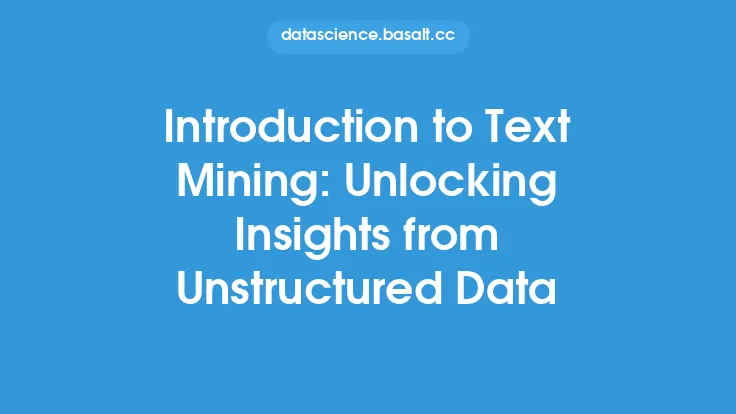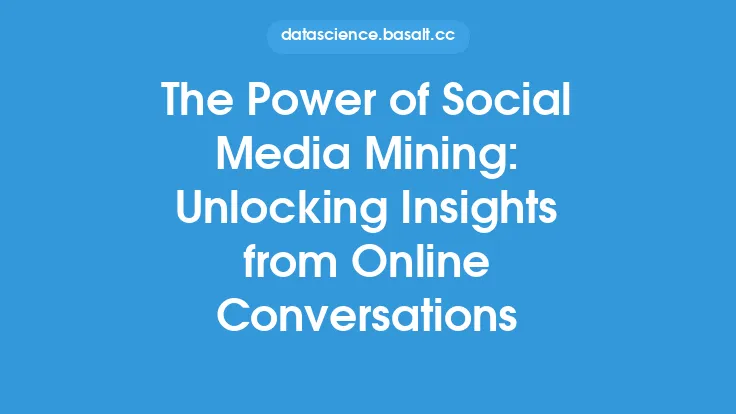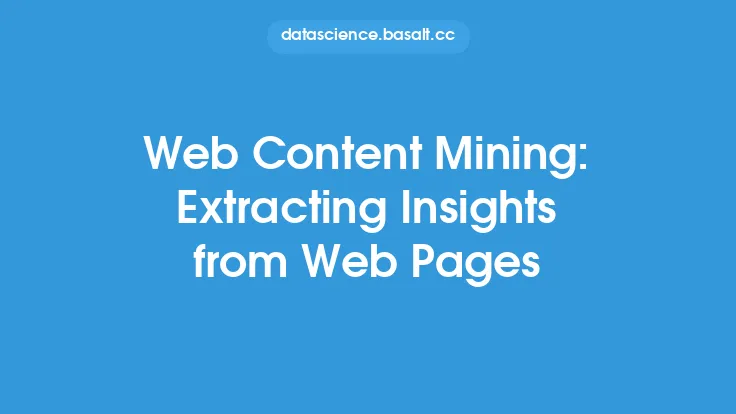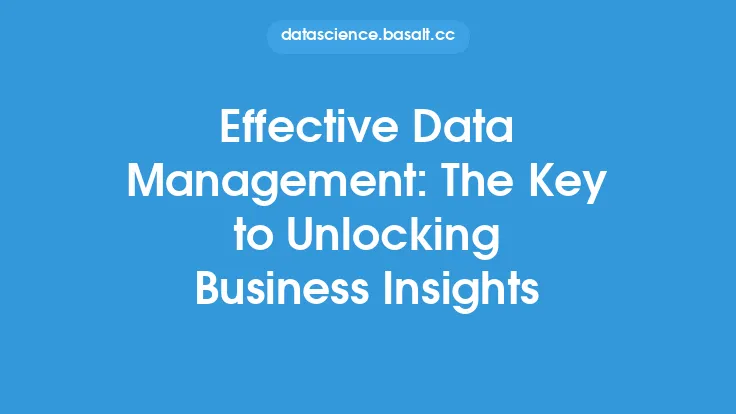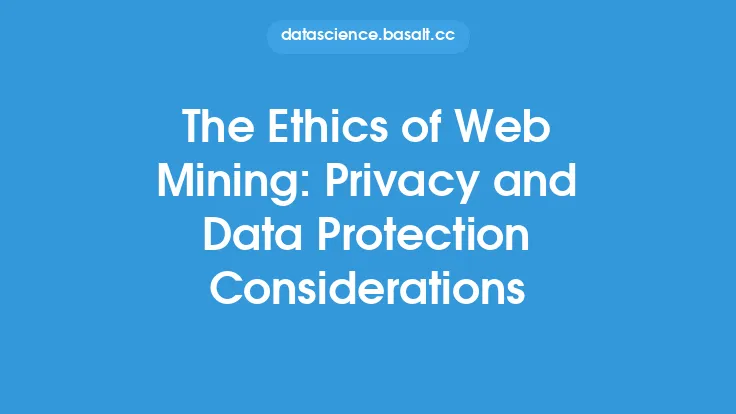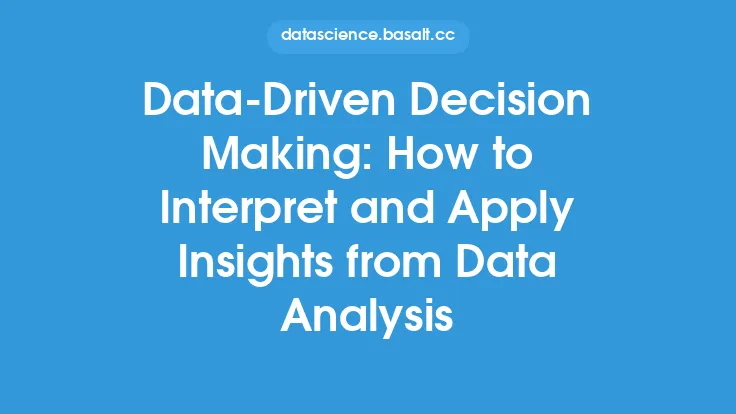The internet has become an indispensable part of modern life, with billions of people around the world using it to access information, connect with others, and conduct various activities. As a result, the web has become a vast repository of data, containing a wide range of information that can be used to gain insights into human behavior, preferences, and trends. Web mining is the process of automatically discovering and extracting useful patterns, relationships, and insights from online data, and it has become a crucial aspect of data mining.
What is Web Mining?
Web mining is a subfield of data mining that focuses on the discovery and extraction of knowledge from web data. It involves using various techniques, such as text mining, data mining, and machine learning, to analyze and extract insights from web pages, social media, online forums, and other online sources. Web mining can be used to extract a wide range of information, including text, images, audio, and video, and can be applied to various domains, such as e-commerce, marketing, and social media analysis.
Types of Web Mining
There are several types of web mining, including web content mining, web structure mining, and web usage mining. Web content mining involves extracting insights from the content of web pages, such as text, images, and audio. Web structure mining involves analyzing the link structure of the web, including the relationships between web pages and websites. Web usage mining involves analyzing user behavior on the web, including clickstream analysis and user profiling.
Web Mining Process
The web mining process typically involves several steps, including data collection, data preprocessing, pattern discovery, and pattern evaluation. Data collection involves gathering data from online sources, such as web pages, social media, and online forums. Data preprocessing involves cleaning and transforming the data into a format that can be used for analysis. Pattern discovery involves using various techniques, such as machine learning and data mining, to identify patterns and relationships in the data. Pattern evaluation involves evaluating the accuracy and usefulness of the discovered patterns.
Web Mining Techniques
There are several web mining techniques that can be used to extract insights from online data, including text mining, data mining, and machine learning. Text mining involves using techniques, such as natural language processing and information retrieval, to extract insights from text data. Data mining involves using techniques, such as clustering, classification, and regression, to extract insights from structured data. Machine learning involves using techniques, such as supervised and unsupervised learning, to train models that can make predictions or recommendations based on online data.
Applications of Web Mining
Web mining has a wide range of applications, including e-commerce, marketing, social media analysis, and customer relationship management. In e-commerce, web mining can be used to personalize product recommendations, improve customer service, and optimize supply chain management. In marketing, web mining can be used to analyze customer behavior, track brand reputation, and optimize marketing campaigns. In social media analysis, web mining can be used to analyze public opinion, track trends, and identify influencers.
Challenges and Limitations of Web Mining
Despite its many benefits, web mining also has several challenges and limitations. One of the main challenges is the sheer volume and complexity of online data, which can make it difficult to extract insights and patterns. Another challenge is the issue of data quality, which can be affected by factors such as noise, bias, and missing values. Additionally, web mining raises several ethical concerns, such as privacy and data protection, which must be addressed in order to ensure that online data is collected and used in a responsible and transparent manner.
Future of Web Mining
The future of web mining is likely to be shaped by several trends and technologies, including big data, artificial intelligence, and the Internet of Things. As the amount of online data continues to grow, web mining will become increasingly important for extracting insights and patterns from this data. Additionally, the use of artificial intelligence and machine learning will become more prevalent in web mining, enabling the development of more sophisticated and accurate models. Finally, the Internet of Things will provide new opportunities for web mining, as more devices and sensors become connected to the internet and generate vast amounts of data.
